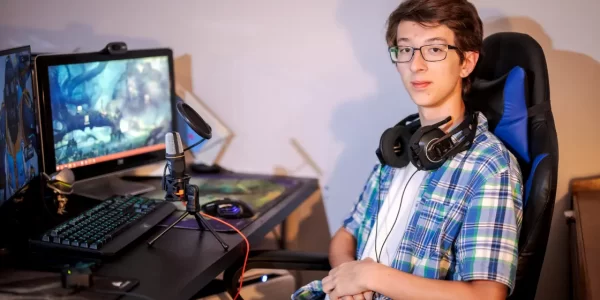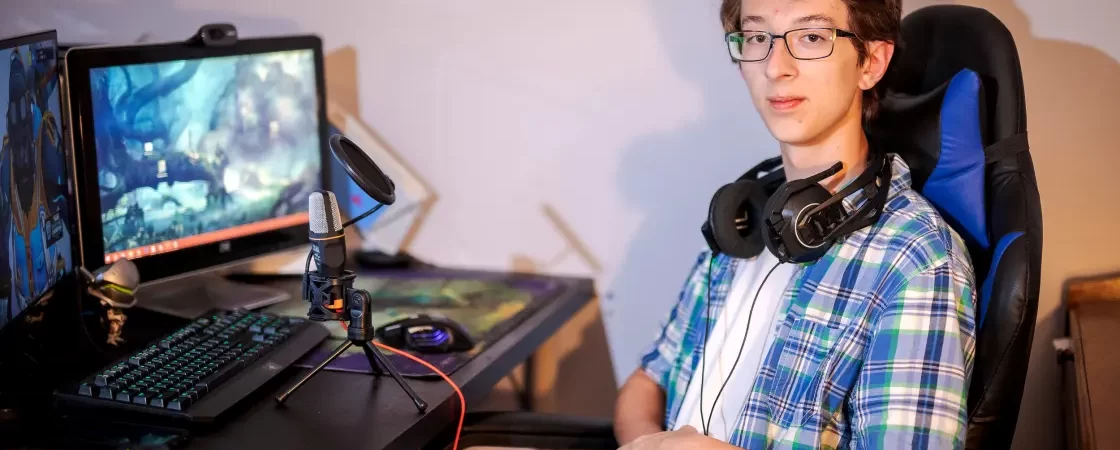Gaming scholarships are a new frontier in the academic world. As esports continue to gain popularity, more educational institutions are recognizing competitive gaming as a legitimate skill. These scholarships offer gamers the opportunity to pursue higher education while engaging in the sport they love. Their growing presence in the esports arena marks a significant shift in how gaming is viewed in academic settings. This development opens exciting avenues for students who excel both in gaming and academics.
The Emergence of Esports in Education
Esports has surged globally, creating a new dynamic in education. Schools and universities now recognize esports as more than just a pastime. This rise reflects in curriculums and extracurricular activities, with competitive gaming becoming a key part of student life.
The growth of esports in education has led to the introduction of gaming scholarships. These scholarships reward skill in gaming, much like traditional sports scholarships. They offer financial support to talented gamers, helping them pursue academic goals.
For students juggling gaming and studies, time management is crucial. Some turn to services offering custom essays to make more time for gaming. This approach allows them to balance their academic responsibilities with their passion for esports. The advent of gaming scholarships is a testament to the evolving landscape of education, where gaming prowess is now as valuable as academic excellence.
Different Types of Gaming Scholarships
Gaming scholarships come in various forms, catering to different needs of student gamers. Full-tuition scholarships are the most coveted, covering the entire cost of education. They often go to top-tier gamers who demonstrate exceptional skill in their chosen game.
Partial scholarships, another common type, offer a subsidy, covering part of the tuition fees. These are great for gamers who excel in esports but might not be at the professional level yet.
Then there are equipment grants. These don’t cover tuition but provide state-of-the-art gaming gear. This support is vital for gamers needing high-end equipment to stay competitive.
The criteria for these scholarships vary. Gaming prowess is key, with institutions looking for students who excel in esports. Academic achievements are also considered, ensuring candidates can handle college coursework. Community involvement, like participating in gaming clubs or local competitions, can be a bonus. This mix of criteria ensures a holistic assessment of candidates, balancing gaming talent with academic and social skills.
Eligibility and Application Insights
Eligibility for gaming scholarships usually hinges on a few key criteria. Firstly, academic performance is often considered, with institutions typically requiring a minimum GPA. This ensures that recipients can handle the rigors of college academics alongside their gaming commitments.
In terms of gaming, applicants usually need to demonstrate significant achievements or rankings in specific games. This could be through tournament results or recognized rankings in online gaming platforms.
The application process for these scholarships can be quite detailed. Applicants often need to submit their academic transcripts as a testament to their scholarly abilities. Additionally, a gaming portfolio or a highlight reel showcasing their gaming skills is crucial. This could include footage from tournaments or ranked matches.
Personal essays or statements are another common requirement. These provide insight into the applicant’s passion for gaming and their career aspirations in the esports industry. Letters of recommendation, either from academic instructors or gaming coaches, can also bolster an application, providing a third-party perspective on the applicant’s abilities and character.
Navigating Academics and Competitive Gaming
Balancing academics and competitive gaming is a challenging but manageable task. The key lies in effective time management and setting clear priorities.
Firstly, creating a structured schedule is crucial. Allocating specific times for gaming practice, study, and leisure can help maintain a healthy balance. This approach ensures that gaming does not encroach on academic responsibilities.
Secondly, setting academic goals alongside gaming objectives is important. This helps in staying focused on educational achievements, preventing gaming from becoming an all-consuming pursuit.
Utilizing study techniques like Pomodoro sessions or active learning can enhance study efficiency. These methods allow for maximum retention in minimal time, freeing up more time for gaming.
Lastly, don’t hesitate to seek help when needed. This could be academic support from tutors or advice from gaming mentors. Leveraging resources like these can aid in managing both worlds effectively, ensuring success in academics and competitive gaming.
Career Paths Beyond the Game
The gaming and esports industries offer a plethora of career opportunities beyond being a professional player. Those passionate about gaming can explore roles in game development, where creativity and technical skills come together to create new gaming experiences. Marketing and event management within the esports sector are also burgeoning fields, offering avenues for those with a knack for business and communication.
For those interested in the analytical side of gaming, careers in data analysis and esports coaching are promising. These roles involve deep understanding of game mechanics and player strategies, crucial for teams looking to gain a competitive edge.
Gaming scholarships can be the first step towards these diverse careers. They not only provide educational funding but also open networking opportunities within the gaming community. For students aiming to advance their academic credentials in these fields, services like the best dissertation writing service can be invaluable. They offer support in academic research and writing, allowing students to excel in their studies and pave the way for a successful career in the vast world of gaming and esports.
The Future of Gaming Scholarships
The future of gaming scholarships is likely to mirror the dynamic evolution of the esports industry. As esports continue to gain mainstream recognition, we can expect a significant increase in the number and diversity of gaming scholarships. More educational institutions might start offering these scholarships, recognizing esports as a legitimate field of study and career path.
Additionally, the criteria for awarding gaming scholarships may evolve. Beyond gaming prowess, aspects like digital content creation, game strategy analysis, and esports event management skills could become important factors. This shift would reflect the multifaceted nature of the esports industry.
The industry’s growth might also lead to partnerships between educational institutions and major gaming companies, creating more specialized scholarships. These collaborations could offer students unique opportunities for internships and mentorships, bridging the gap between academic learning and real-world esports experience. This evolution in gaming scholarships will likely provide broader opportunities for students to turn their passion for gaming into successful careers.
Conclusion
In conclusion, gaming scholarships represent a significant bridge between the world of esports and academic achievement. They cater to a range of needs, from full tuition to equipment grants, and are accessible to those who excel both in gaming and academics. These scholarships not only support students financially but also open doors to various career opportunities in the gaming industry. As esports continues to grow, gaming scholarships will undoubtedly play a crucial role in shaping the future of young gamers, connecting their passion for gaming with educational and professional prospects.




